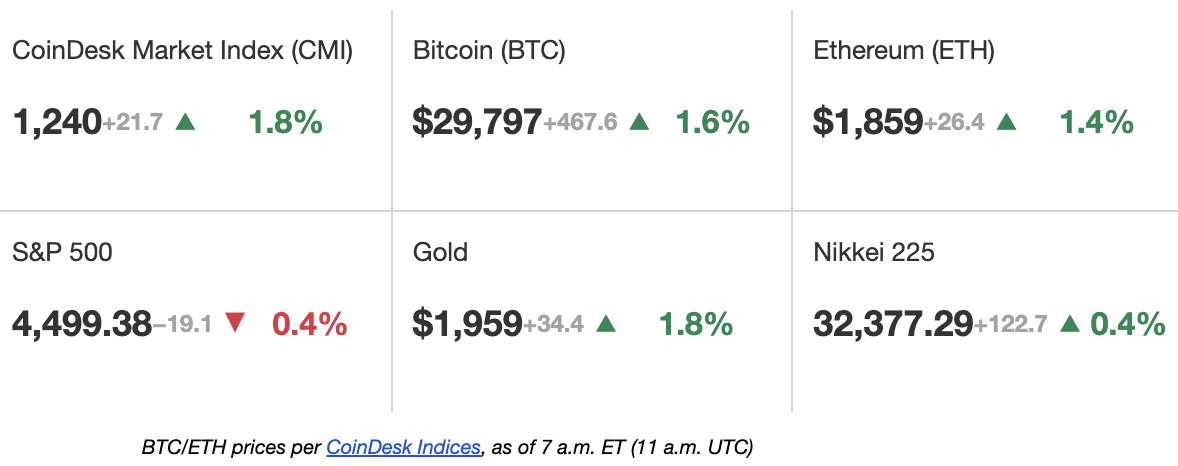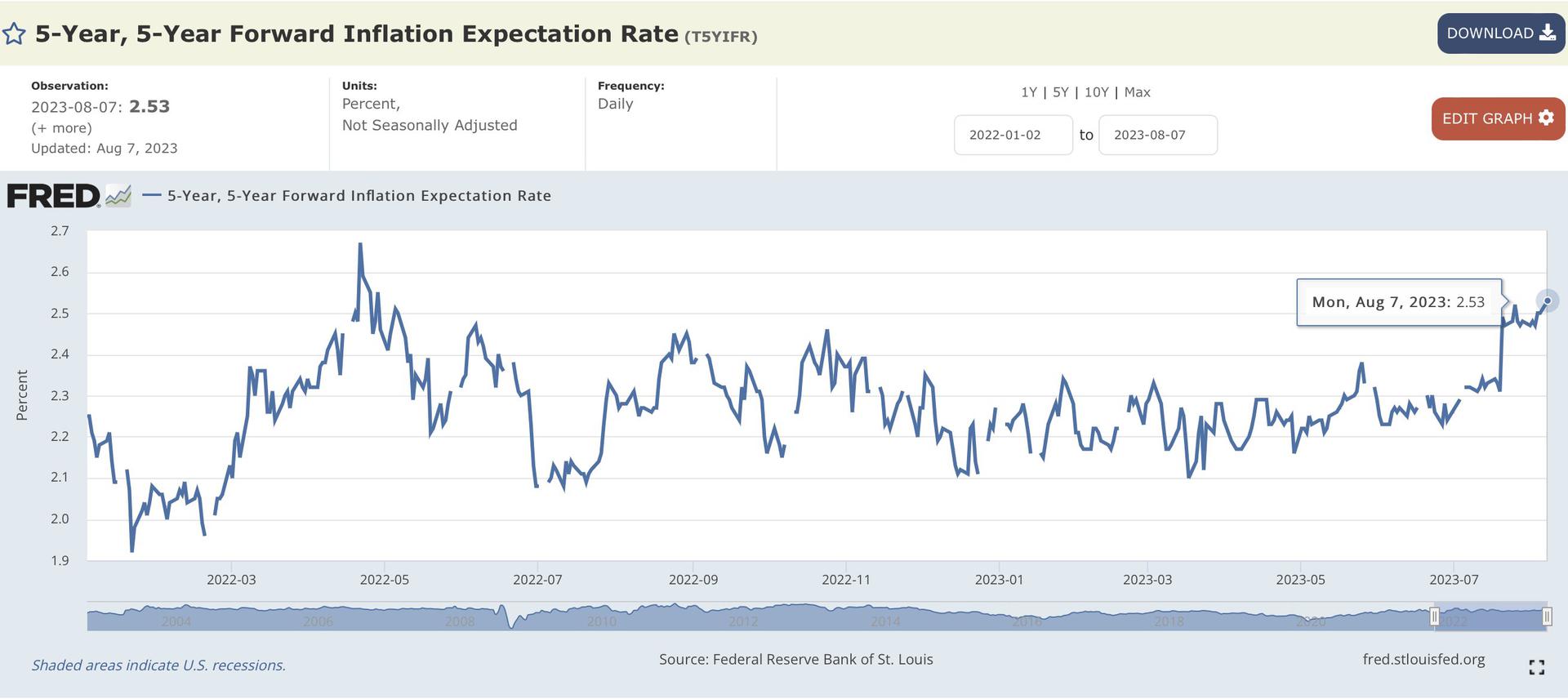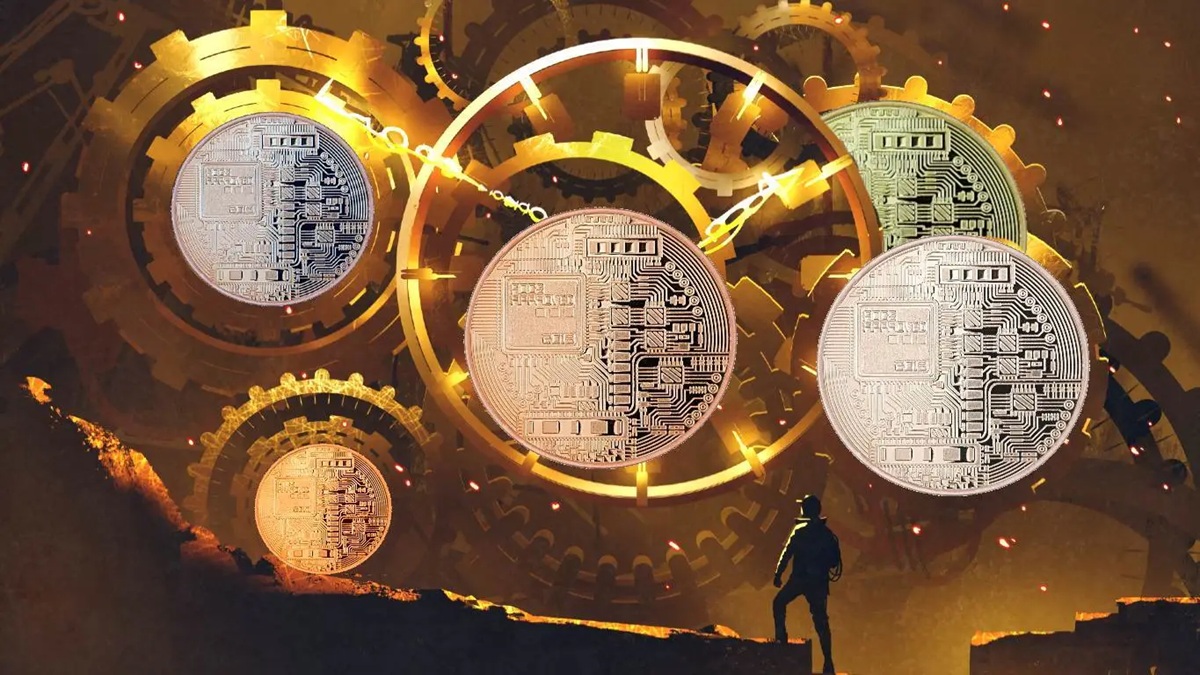This article originally appeared in First Mover, CoinDesk’s daily newsletter putting the latest moves in crypto markets in context. Subscribe to get it in your inbox every day.
Latest Prices

Top Stories
Bitcoin rose 2.3% in the past 24 hours to close to $30,000 as investors wait for July’s Consumer Price Index, a gauge of inflation in the U.S., which is scheduled to be released on Thursday. Core inflation, which excludes volatile food and energy prices, is expected to come in at 0.4%, far below the pace seen a year ago. Lower inflation should mean the Federal Reserve will be less likely to raise rates. Oliver Rust, head of product at independent inflation data aggregator Truflation, predicts that the inflation numbers will show that CPI spiked from 3% to 3.4% in July. “Over the past three months, the rapid decline in inflation allowed consumers to regain their purchasing power, with wages growing at a faster rate than prices. This has resulted in the resurgence of rampant consumer spending, pushing up prices in the all-important food category,” Rust wrote in a morning note.
The Fed is starting a new program for overseeing banks’ crypto activity, and it further clarified its requirement that the lenders under its authority get approval before engaging in digital-assets activities. The move announced Tuesday doesn’t change any rules for crypto banking. Rather, it just defines how the central bank intends to handle oversight, putting dealings with the crypto sector under the new “novel activities supervision program” in which the Fed’s specialized experts in digital assets will work alongside the regulator’s regular supervisors. The Fed also issued a fuller explanation for how the banks it supervises need to get preapprovals for engaging with stablecoins. An institution that’s “issuing, holding, or transacting in dollar tokens to facilitate payments” needs to prove to the supervisors beforehand that it can do it in a “safe and sound manner” and needs the Fed to formally sign off.
Binance received two licenses to operate in El Salvador as it seeks to build its legitimacy worldwide, the crypto exchange said Tuesday, adding that it now has licenses in 18 markets. The Central Bank of El Salvador granted Binance a Bitcoin Services Provider license, while the Salvadoran National Commission of Digital Assets issued a non-provisional Digital Assets Services Provider license, the company said in a statement. “These licenses allow Binance to expand the products and services offered including options tailored to the needs of our customers in El Salvador,” Daniel Acosta, general manager for Colombia, Central America and Caribbean at Binance, said in the statement.
Chart of the Day

– Omkar Godbole





